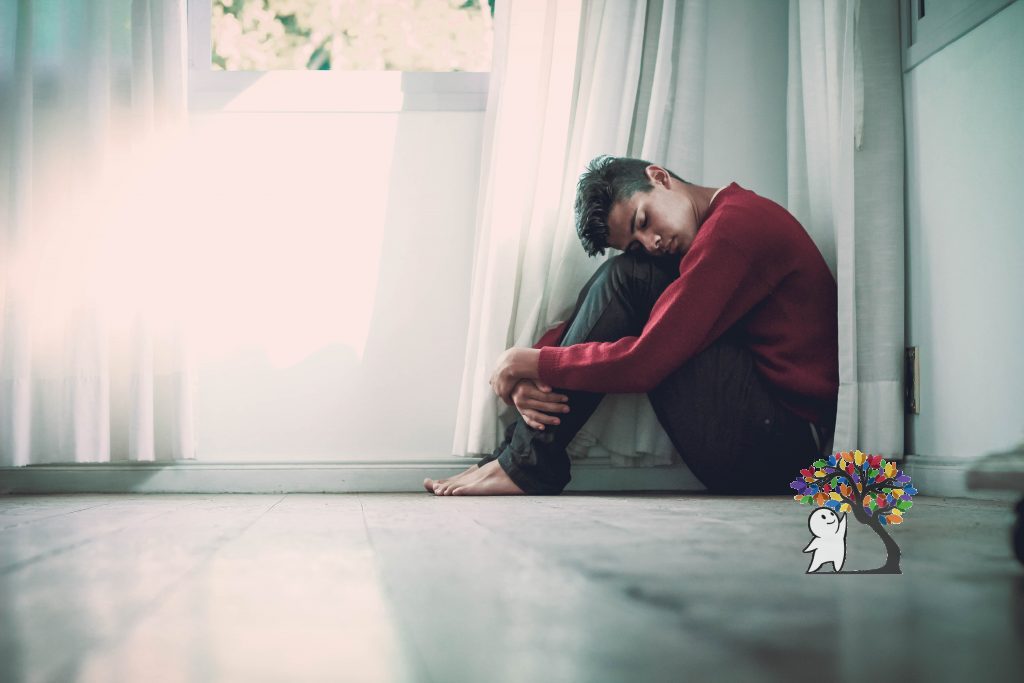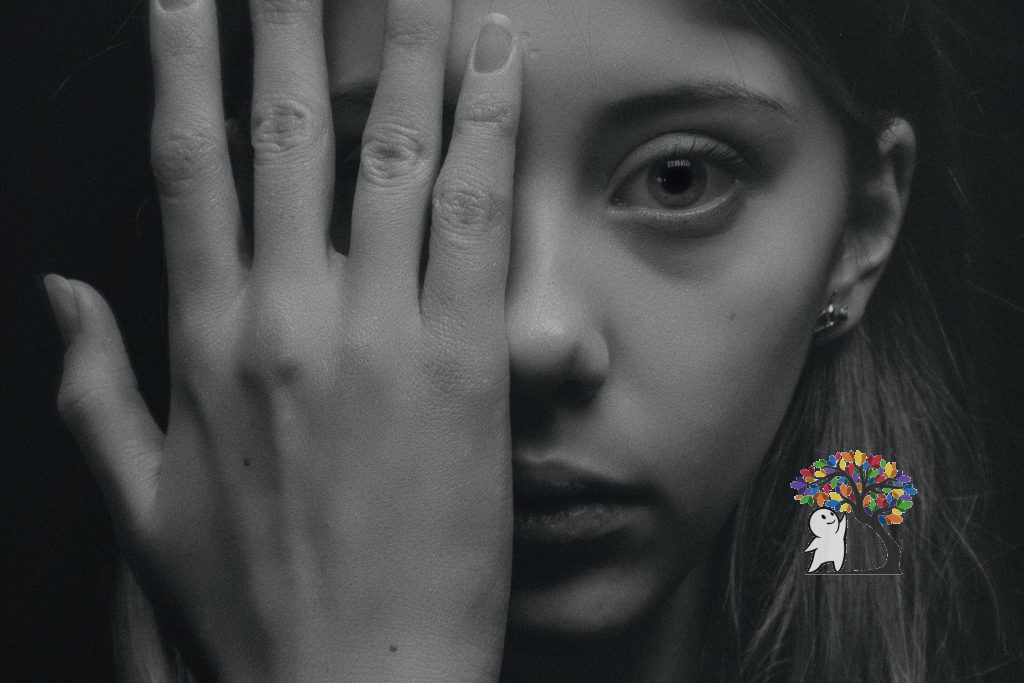5 Ways Unhealed Trauma Affects Us

People can experience trauma in a number of ways: neglect and abuse, to name just a couple. After a traumatic event, it is important to work on the necessary healing, because living with trauma can cause it to become unhealed. Unhealed trauma can affect our brain and lives in many ways, and unfortunately will not die down on its own. Here are 5 ways unhealed trauma affects us.
1. Potential violent acting out
In our brain, there is a sort of emotion hub, called the amygdala. While the amygdala controls the expression of many emotions, it tends to have a very prominent role in fear and aggression. Trauma is widely known to increase activity in this brain region. Seeings as traumas tend to bring about a myriad of negative emotions–fear, anxiety, agitation, stress, and so on–most of which are housed in the amygdala, it would make sense that unhealed trauma could cause these emotions intensify in the brain (Center for Substance Abuse Treatment 2014).
According to Carolyn Yoder from Peace After Trauma, when trauma goes unhealed, the normal stress reactions from trauma can amplify into acts of violence (Yoder 2018). Essentially, thoughts of the unhealed trauma cause a lot of intensity and energy in the brain, and people can resort to violence to release everything (Yoder 2018). Although this is a legitimate effect of unhealed trauma, we want to emphasize that this is not safe or healthy for the traumatized individual ones or their loved ones. Yoder says that this sort of violence can pass through generations, so she suggests trying to break this cycle and heal as soon as possible (Yoder 2018).
2. The potential development of PTSD
Post-traumatic stress disorder is one of the most well-known impacts of trauma. But did you know that PTSD actually results from unhealed trauma? This anxiety disorder can manifest in many ways. Common symptoms of PTSD are nightmares, flashbacks, avoidance of trauma, and emotional numbness (Millán). When trauma is resolved, the potential effects of the trauma are drastically reduced, so PTSD likely won’t occur. However, there are many layers and complexities that lie within PTSD, some of which are more recently brought to light. For more in-depth information about this disorder, be sure to check out some of our other videos and articles.
3. Potential substance abuse
As we said before, trauma brings about a lot of negative responses. Unhealed trauma makes these stress reactions even more debilitating and can lead to substance abuse (Center for Substance Abuse Treatment 2014). The combination of these biological and cognitive impacts can be painful and difficult to deal with, and unfortunately, self-medication is a common coping mechanism (Center for Substance Abuse Treatment 2014). People turn to drugs or alcohol for many different reasons. Commonly cited ones are attempts to displace emotions and avoid the constant impact of trauma (Center for Substance Abuse Treatment 2014).
Substance abuse is dangerous and can quickly become addiction. More effective ways to combat both substance abuse and the effect of trauma are cognitive behavioral therapy and treatment programs.
4. Has more adverse effects on Highly Sensitive People (HSP)
Highly Sensitive People have the tendency to feel everything more intensely. The good, the bad, and everything in between. When it comes to trauma, this tendency unfortunately still applies (Nielsen 2020). According to Brooke Nielsen from Highly Sensitive Refuge, the characteristics of the highly sensitive brain can be intensified by unhealed trauma (Nielsen 2020). Examples are traits such as emotional reactivity and anxiety (Nielsen 2020).
If you are an HSP struggling with the effects of unhealed trauma, please remember to be kind to yourself. There are resources to help you overcome these debilitating emotions, and with healing, self-love, and self-compassion, you will be okay. Nielsen suggests mindfulness and trauma-sensitive yoga to reconnect to your body, and therapy such as Somatic Experiencing (Nielsen 2020).
5. Potential physical health impairments
Did you know that trauma affects the body as well as the mind? According to a study done by Harvard Health, past trauma can make people more susceptible to a number of somatic diseases and disorders, such as cancer, diabetes, obesity, stroke, and heart attack (Harvard Health 2019). The study did focus only the later impacts of childhood trauma, and said that physical susceptibilities result from behavioral and physical changes that occur from the trauma (Harvard Health 2019). Examples include overeating, more adrenaline production, and even more inflammation (Harvard Health 2019). Logically, many of these changes can be future health risks. In order to avoid these susceptibilities, it is important to try and get help to heal from the past trauma.
The Harvard Health study suggests a few resources to overcome common healing barriers (Harvard Health 2019). These include The International Society for Traumatic Stress Studies, The Anxiety and Depression Association of America and The National Center for PTSD (Harvard Health 2019). The links to these websites are below.
We hope this helped you understand the impact of unhealed trauma. For more specific information on some of the topics mentioned in this article, be sure to check out our other articles and videos. Did we miss any potential effects of unhealed trauma? Let us know in the comments below. Thanks for reading!
Harvard Health Links
- The International Society for Traumatic Stress Studies: https://istss.org/home
- The Anxiety and Depression Association of America: https://adaa.org/
- The National Center for PTSD: https://www.ptsd.va.gov/
References
- Center for Substance Abuse Treatment (US). Trauma-Informed Care in Behavioral Health Services. Rockville (MD): Substance Abuse and Mental Health Services Administration (US); 2014. (Treatment Improvement Protocol (TIP) Series, No. 57.) Chapter 3, Understanding the Impact of Trauma.
- Millán K. “Signs and Symptoms of PTSD”. Black Bear Lodge. Black Bear Rehab. N.d.
- Nielsen B. “How Unhealed Trauma Affects Highly Sensitive People”. Highly Sensitive Refuge. 10 February 2020.
- “Past trauma may haunt your future health”. Harvard Women’s Health Watch. Harvard Health Publishing: Harvard Medical School. February 2019.
- Yoder C. “Unaddressed trauma & how it impacts us”. Peace After Trauma. 2018.




Responses